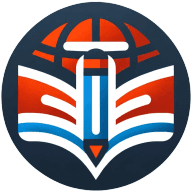The digital age has brought about a revolution in education, with online platforms playing a pivotal role. This blog post aims to provide a comprehensive comparison of various online education platforms. We'll delve into their features, benefits, and potential drawbacks, helping you make an informed decision about which platform best suits your needs.
The Rise of Online Education
The advent of the internet has transformed many aspects of our lives, and education is no exception. Online education platforms have emerged as a viable alternative to traditional classroom learning, offering flexibility and convenience that brick-and-mortar institutions often cannot match.
These platforms provide a wide range of courses, from academic subjects to professional skills, and cater to learners of all ages. They have democratized education, making it accessible to anyone with an internet connection, regardless of geographical location.
However, with a plethora of online education platforms available, choosing the right one can be a daunting task. This is where our comparison comes into play. We'll examine several popular platforms, evaluating their features, course offerings, pricing, and more.
Coursera: A Comprehensive Learning Hub
Coursera, a well-known name in the online education sector, offers a vast array of courses from top universities and organizations worldwide. It provides a mix of free and paid courses, with options for certification and even degree programs.
Coursera's strength lies in its extensive course catalog. Whether you're interested in computer science, business, art, or personal development, you're likely to find a course that suits your needs. The platform also offers a unique feature called 'Specializations', which are series of related courses designed to help you master a specific topic.
While Coursera offers a wealth of knowledge, it's not without its drawbacks. Some users have reported issues with course availability and customer service. Additionally, while many courses are free, obtaining a certificate often requires a fee.
Udemy: A Marketplace for Learning
Udemy operates on a different model than Coursera. Instead of partnering with universities, Udemy allows anyone to create and sell courses. This results in a vast and diverse course catalog, covering everything from coding to cooking.
Udemy's pay-per-course model means you only pay for what you want to learn. This can be more cost-effective than platforms that charge monthly subscriptions. However, the quality of courses can vary, as they're not vetted by any educational institution.
Despite this, Udemy's review system allows users to rate and review courses, helping you make informed decisions. The platform also offers lifetime access to courses, so you can learn at your own pace.
Khan Academy: Free Learning for All
Khan Academy stands out from the crowd with its commitment to free education. It offers a wide range of courses, primarily focusing on academic subjects. Its interactive exercises and instant feedback make it a great tool for students.
Khan Academy's mission to provide a free, world-class education for anyone, anywhere, is truly commendable. However, its course offerings are more limited compared to platforms like Coursera and Udemy, particularly in areas like professional development.
Despite this, Khan Academy's comprehensive resources for K-12 education and its partnerships with institutions like NASA and The Museum of Modern Art make it a valuable resource for students and lifelong learners alike.
LinkedIn Learning: Professional Development and Networking
LinkedIn Learning, formerly known as Lynda, combines professional development courses with the networking power of LinkedIn. It offers a wide range of courses, with a focus on business, technology, and creative skills.
LinkedIn Learning's integration with LinkedIn's professional network sets it apart. Completing a course adds a certificate to your LinkedIn profile, showcasing your new skills to potential employers. However, unlike other platforms, LinkedIn Learning requires a monthly subscription, which may not suit everyone's budget.
Despite this, its high-quality courses, expert instructors, and networking opportunities make it a compelling choice for professionals looking to upskill.
edX: University-Level Courses at Your Fingertips
edX is a non-profit organization founded by Harvard University and MIT. It offers university-level courses in a wide range of disciplines. Like Coursera, edX partners with top universities and institutions to provide high-quality education.
edX's MicroMasters and Professional Certificate programs allow learners to earn credit towards a Master's degree or gain professional skills. However, while many courses are free, these programs, along with verified certificates, come with a cost.
Despite this, edX's commitment to increasing access to high-quality education, its wide range of courses, and the prestige of its partner institutions make it a strong contender in the online education sector.
Making the Right Choice: A Comparative Analysis of Online Education Platforms
The world of online education is vast and varied. Each platform offers unique features and benefits, and the best choice depends on your individual needs and goals. Whether you're seeking academic enrichment, professional development, or personal growth, there's an online education platform out there for you. By comparing and evaluating these platforms, we hope to have made your decision-making process a little easier.

